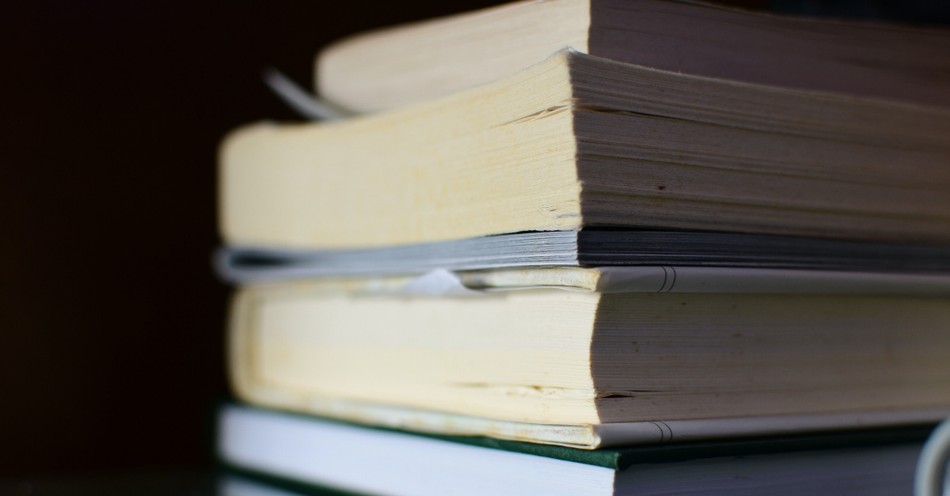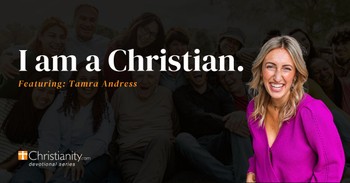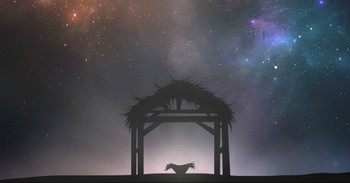The author of Ecclesiastes wasn’t joking when he said, “the writing of many books is endless” (Ecclesiastes 12:12). This makes things complicated if you’re seeking a well-written Christian book—whether you want a guide to prayer, a well-written novel, or an interesting spiritual memoir. What’s new and interesting? What’s old but maybe an overlooked classic? What’s entertaining but substantial?
Fortunately, you don’t have to enter the bookstore without guidance. The following list looks at Christian authors across several major genres, from poets to therapists to literary novelists. Some of them are famous. Others frequently appear on lists of “overlooked Christian authors you should know about.” Each of them creates interesting, crafted work in their chosen field.
Table of Contents
- 10 Christian Authors Who Write Fiction
- 10 Christian Authors Who Write Literary Fiction
- 10 Christian Authors Who Write Poetry
- 10 Christian Authors Who Write Nonfiction
- 10 Classic Christian Authors You Should Know About
- 5 Great Books to Learn about Christian Authors

10 Christian Authors Who Write Fiction
Some of these writers have been published for a decade or more, while others are newer faces. Almost all of them write fiction released by Christian publishers, though a few work in independent and mainstream publishing. Each has found compelling ways to integrate their faith and values with their storytelling.
1. Hope Bolinger
Hope Bolinger is a newer Christian author yet has already had a diverse career. The Blaze trilogy retells the story of Daniel as a psychological thriller set in a private high school. The Cassandra Crossing is a comedic fantasy novel involving ancient curses and interdimensional travel. Bolinger has also co-written the Dear Hero series, which parodies superheroes and romantic comedies, and an ongoing series of romance novels (the Roseville Romances). Each book’s style and subject vary, but Bolinger always provides quirky humor and an abiding interest in good’s triumph over evil.
2. Bryan Davis
Bryan Davis first became known for his fantasy novels for young adults—particularly the Dragons in Our Midst series featuring humans who discover they have dragon powers. Those stories continue in associated series (Oracles of Fire, Children of the Bard), but Davis has also dabbled in other speculative genres. The Oculus Gate series is an End Times dystopian thriller series about what the remaining humans do after a war involving angels ravages the earth. The standalone Let the Ghosts Speak is an atmospheric mystery set in 19th-century France where a masquerade ball guest wonders if the other guests are ghosts seeking his help.
3. Alyssa Roat
Alyssa Roat co-wrote the Dear Hero series and the Roseville Romances with Bolinger but has also contributed solo work to anthologies like Fantasea and Realms of Fire. However, her best-known work is the award-winning Wraithwood trilogy, in which a teenage girl visits a mysterious uncle and discovers her family has secrets involving Arthurian magic and prophecies. The Wraitwood saga is filled with interesting characters and detailed world-building, making it stand above many competitors.
4. Mike Nappa
Mike Nappa began his career writing Christian nonfiction, which he continues to do (most recently writing The Hard Way Home, a compelling book about cancer and grief). In the early 2000s, he wrote several excellent thrillers (Drift, Sinner, and Unpretty) under the pseudonym Sharon Carter Rogers. Since then, he has released a great series under his own name. The Coffey & Hill series follows Trudi Coffey and Samuel Hill as they solve cases that may involve murder, conspiracies, and even espionage. Each gives a high-tension plot that also features interesting characters… who may not behave as genre expectations lead readers to believe.
5. Valerie Fraser Luesse
Valerie Fraser Luesse writes historical romance novels in a style that raises her work above most of the genre. Her books all involve the South and show its genteel side. However, whether it’s a young boy taking a bicycle trip across 1950s Florida (The Key to Everything) or a schoolteacher helping Cajun locals keep their town safe from politicians (Under the Bayou Moon), or an Alabama family revisiting what tore their family apart (Letters from My Sister), Luesse shows the culture’s capacity for darkness as well as charm. Things are never as simple as they look, and the setting is detailed in a way that only comes with deep research. Consequently, her stories feel rich and textured, and the happy endings feel more enriching than most inspirational Christian romances.
6. Shawn Smucker
Shawn Smucker’s fiction has been compared to Ray Bradbury, which may be the best way to explain his interesting genre mix. Like Bradbury, Smucker’s novels have a strong sense of place: whether they take place in an otherworldly forest (These Nameless Things), a small Pennsylvania town (The Day the Angels Fell), or a Philadelphia mortuary (Light from Distant Stars), the setting feels vivid and detailed. However, like many of Bradbury’s stories, fantasy elements—a monster, an otherworldly force, something that suggests this story may not be happening in the world we know—creep in. The fantasy elements are suspenseful, making it hard to label the stories as fairytales. Still, they aren’t dark enough to make the books into horror stories. Smucker uses this mix to create gripping, surprising tales about catharsis and reconciliation.
7. Mary Schlegel
Initially published as Mary Ruth Pursselley, Mary Schlegel has built an impressive collection of work ranging from fantasy short stories (included in anthologies like Whitstead Christmastide) to historical romance (The Shadowfields). Her most recent work has included science fiction (The PRISM Conspiracy, contributions to Aquasynthesis Again and Avenir Eclectica) and fantasy (Son of the Shield). Occasionally she will mix those two genres in surprising ways, like in The Last Will and Testament of Captain Nemo. In each case, Schlegel finds a way to catch readers’ attention from the beginning and twist her chosen genre in intriguing ways.
8. Charles Martin
Charles Martin writes across several genres, and while he works within the same categories as the other writers mentioned above, he adds something memorable. Some of his books are romances (Unwritten, The Mountain Between Us). Others are thrillers (the Murphy Shepherd series). A few may best be described as coming-of-age stories or family dramas (Long Way Gone, Chasing Fireflies). In each case, Martin’s story emphasizes the characters, giving them plenty of history and a well-developed setting. His writing may not be flashy, but his approach makes his stories seem more real. Martin consistently gives readers engaging stories that will stick with them.
9. Melissa Kosslin
Melissa Kosslin has published three thrillers so far. Her first was the final book in the Coffey & Hill series, which she co-wrote with Nappa using the name Melissa Kosci. She has also written two solo novels: Dangerous Beauty, a story about a woman who thinks she’s escaped the Mexican human trafficking ring that killed her mother, and Never Miss, a story about a professional assassin who accidentally saves a stranger from a sniper. Each book shows a great eye for detail, adventure, and believable characters.
10. Eleanor Taylor Bland
Eleanor Taylor Bland passed away in 2010, leaving a legacy that, sadly, too few readers knew about. In over 14 novels, she told the adventures of Marti MacAlister, an African-American detective working in the Chicago suburb of Lincoln Prairie. Where the stories involve MacAlister dealing with the history of Lincoln Prairie (Fatal Remains) or see heading for exotic locates (Whispers in the Dark), they are well-written detective stories with a firm moral code. Along with creating probably the first African-American female detective, Bland succeeded at telling mystery stories that featured religion without being preachy. Readers who want to start reading the Marti MacAlister Mysteries can start with the first novel (Dead Time), and ones who prefer shorter fiction may enjoy Bland’s contributions to the anthologies Shades of Black or The World’s Finest Mystery and Crime Stories.
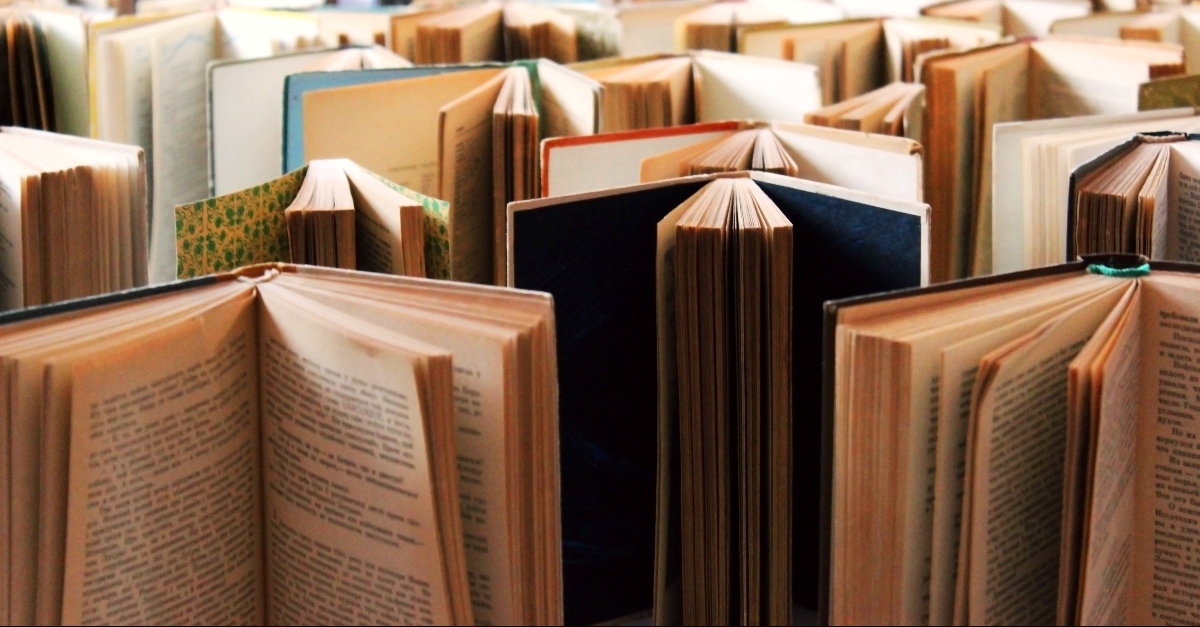
10 Christian Authors Who Write Literary Fiction
The following writers may not fit on the Christian Fiction shelves, but they’ve become famous for their thoughtful fiction that considers religious ideas in nuanced ways.
1. Pat Conroy
Pat Conroy wasn’t primarily known during his lifetime for his religious views—although R.C. Sproul tells a surprising story in Making a Difference about exchanging letters with Conroy, where Conroy described how theological ideas informed his writing. While Conroy could criticize religion and often seemed most comfortable talking about seeing God in nature, friends like Jonathan Haupt have noted he did attend church. Other friends remembered Conroy’s surprising, Christ-like generosity to other writers. Conroy’s novels (especially The Great Santini and Lords of Discipline) emphasized that humans can do evil things but also the essential humanity in even the worst leaders. Frequently his books helped readers understand their trauma and could even spark unexpected change in the people he critiqued.
2. Katherine James
Katherine James has only released two books so far, but each has been well-crafted and gained significant attention. A Prayer for Orion is her memoir about her son’s recovery journey as a heroin addict. Can You See Anything Now? is a novel about residents in a small town called Trinity, where several neighbors discover each other’s struggles—mental health problems, physical issues, or feelings of inadequacy. Whatever James is writing, she shows the peculiar mix of flaws and nobility that every person can carry.
3. Eugene Vodolazkin
A historian by trade, Eugene Vodalazkin has written some fascinating essays on Russia’s complicated religious history and the value of understanding the past (since it has a way of repeating itself). Perhaps as a result, his novels are often stories about grappling with the past. His first novel to get major Western attention (Laurus) and his most recently translated one (A History of the Island) both feature characters in the medieval period, creating discussions about Christianity’s unique place in Russian history. His novels set closer to the present, like Brisbane, and The Aviator, feature characters dealing with the painful past, showing humanity’s beauty even in the darkest moments. Vodalazkin’s books aren’t always easy to read, but they are filled with a distinctly Christian sense that life has value.
4. Diane Glancy
Diane Glancy’s work has ranged from poetry (Jigsaw) to memoir (Home is the Road), frequently exploring her Cherokee heritage. Her novels provide another interesting avenue to explore Native American heritage and history, retelling historical stories about overlooked Native Americans (The Reason for Crows, Flutie, A Line of Driftwood). Glancy has also written fiction about other overlooked people, like John Wesley’s sister (Mary Queen of Bees). Her works may not be easy to read, but they provide an always-important reminder that Christians are called to love the least and the suffering.
5. Walter Wangerin, Jr.
Walter Wangerin, Jr. seemed to write almost everything, from memoirs (Ragman) to children’s books (Water Come Down!) to biblical fiction (The Book of God) to instruction guides for other writers (Storycraft). His most acclaimed work of fiction was The Book of the Dun Cow, a fantasy based on one of the Canterbury Tales that led to two sequels (Lamentations, Peace at Last). Other fans knew him for his historical fiction novel Saint Julian, a complex exploration of a medieval saint whose life explored the heights of faith and regret.
6. Gina Ochsner
Gina Ochsner’s short stories have appeared in several anthologies (The Female Complaint, Oregon Reads Aloud) and in two collections (The Necessary Grace to Fall, People I Wanted to Be). She has also published two novels that fit the interesting middle ground between fantasy and realistic fiction. The Russian Dreambook of Color and Flight explores the (sometimes hopeful, sometimes hopeless) residents of an apartment building as they reconcile their pasts with the possibility of better futures. The Hidden Letters of Velta B. imagines a young Latvian boy who can hear his town’s deceased people talking about their lives, so he embarks on a project to help the town face its complex legacy.
7. Frederick Buechner
Frederick Buechner released a variety of novels, including historical fiction about unconventional saints (Godric, Brendan), retellings of Bible stories (Son of Laughter), and even young adult fiction (The Christmas Tide). His best-known work, the Leo Bebb series (available as individual books or the revised all-in-one The Book of Bebb), featured an unconventional pastor who seems like a fraud… but may be an instrument of grace. While the styles and subjects vary, Buechner argued that most of his fiction became about saints—the saints who seem unqualified but bring incredible blessings.
8. Denise Giardina
Denise Giardina began her novelist career writing about historical figures (Good King Harry), and she has returned to history again in other works (Saints and Villains, Emily’s Ghost, Fallam’s Secret). However, her best-known work has been stories about Appalachian culture, particularly Appalachian coal mining communities struggling against exploitive companies (The Unquiet Earth, Storming Heaven). Regardless of her subject, her work has explored outsiders fighting for good, frequently using religious language to push readers to consider what they believe.
9. Wendell Berry
Wendell Berry writes prolifically in many genres, and some readers may know him better for his poetry (The Mad Farmer Poems) and nonfiction (The Need to Be Whole). While he has published slightly less fiction, his eight novels and various short story collections are well worth reading, especially since they provide an unusual perspective: each is set in the same community. Berry’s fiction, from novels like Jayber Crow to short story collections like How It Went, each takes place in the fictional town of Port William, Kentucky. Berry uses multiple characters—characters like a barber who considered becoming a minister or a farmer’s son who now lives in San Francisco—across multiple generations to show the town changing and what change means for small communities trying to preserve an older view of what matters.
10. Madeleine L’Engle
Many readers may know Madeleine L’Engle best for her young adult novel A Wrinkle in Time and its sequels or for her religious nonfiction books like Walking on Water. However, she also wrote various novels for adult readers that still hold up well today. The plots may involve romance (Camilla), life after a crisis (The Small Rain, Love Letters), families reflecting on the past (Certain Women, A Live Coal by the Sea), or historical intrigue (The Other Side of the Sun). In each case, the characters are well-drawn, and the stories explore spiritual questions.

10 Christian Authors Who Write Poetry
The following writers may communicate their poetry in music or written words, but each excels at their craft, showing how poetry can explore Christian ideas in many ways.
1. Malcolm Guite
Many know Guite has combined his skills as a poet with his vocation. Most of his poems are sonnets, and many involve religious subjects—poems for the Christmas season (Waiting on the Word), for Lent and Easter (Word in the Wilderness), or ones for the entire religious calendar (Sounding the Seasons). Guite has also written poems inspired by particular books of the Bible (David’s Crown) and written some excellent nonfiction books for Christian poets (Faith, Hope and Poetry, Lifting the Veil)
2. Luci Shaw
Shaw’s work has ranged from Christian living (The Crime of Living Cautiously) to books about creativity (Breath for the Bones), but she always returns to poetry. Some of her poems are playful and have been collected in books for children (The O in Hope). Others are complex and best understood by adults (Harvesting the Fog). One of her recurring themes is nature’s surprising beauty—which can be seen in collections like The Generosity or Eye of the Beholder. However, her poems go beyond communicating how great nature is. They routinely communicate that something divine is appearing just around the natural world’s corner—especially in her books Angels Everywhere and Thumbprint in the Clay.
3. Scott Cairns
Scott Cairns has translated classic poems (Endless Life) and written many of his own, collected in nine books so far (available in the all-in-one collection Slow Pilgrim). Many of these poems deal with religious ideas very clearly—about praying, attending chapel, or the languages used in the Bible. Many of these poems explore how language can be beautiful or challenging and how that experience with language connects to the realization the spiritual life is far bigger than most people realize.
4. Anne M. Doe Overstreet
Anne M. Doe Overstreet’s poems have appeared in various print and online publications (Tweetspeak Poetry, Curator Magazine), and her book Delicate Machinery Suspended. Her poems cover many subjects—sometimes grand ones like the story of Icarus, sometimes small ones like a beekeeper doing his morning work. She particularly excels at poems about everyday things (seeing a public safety film, people waiting at a bus stop) where what seems casual feels greater, as if God and his beauty are working their way into any moment of existence.
5. Robert Siegel
Siegel’s fantasy novels (the Whalesong trilogy, the Kingdom of Wundle series) were his bestselling work, but poetry was an equal or greater passion. His first poetry book (The Beast & the Elders) delivered a series of reflections on animals and nature, all connected to a Christian worldview of creation as God-made and valuable. Siegel often returned to that theme as a novelist, poet, and environmental activist. Despite an extensive teaching career, Siegel released new poetry throughout his career (In A Pig’s Eye, The Waters Under the Earth, A Pentecost of Finches, and the posthumously released Within This Tree of Bones).
6. Sarah Emtage
Emtage’s work extends from audio drama to animation, but especially poetry. She has released three books so far: The Second Rate Poetry of S.M. Emtage, Paperscape, and The Time Wager. The first two books are collections of whimsical poems about various subjects—Paperscape focuses on paper and writing, and Second Rate Poetry covers everything from sunrise to sugar cubes. The Time Wager is a picture book about time-traveling adventurers (as well as dinosaurs, checkers, and steamships).
7. Joe Ricke
A literary scholar by training, most of Ricke’s published books so far have been essays about the Inklings or Inkling scholars. However, some of his poetry features in the anthology New Crops from Old Fields: Eight Medievalist Poets, and others have appeared on his blog, Ben Camino. Some of his poems are about historical figures like Thomas Beckett or St. Lucy. others are meditations on nature or everyday life. He also writes songs, which can be listened to on ReverbNation.
8. Sørina Higgins
Sørina Higgins has written substantial scholarship about little-known Inkling Charles Williams, including making his poetry accessible to new audiences. Along with guiding readers through Williams’ poetry, she has edited an edition of his book-length poem, The Chapel of the Thorn, and contributed an introduction to a new edition of Williams’ Arthurian poetry. She is also a poet herself, with two books published (Caduceus and The Significance of Swans). Her work ranges from sonnets to free verse, from religious scenes to meditations on snow, always with unexpected layers of meaning.
9. Jeanne Murray Walker
Jeanne Murray Walker has written or edited books on several subjects (memoir, essay collections) and had success as a playwright (including several plays collected in North American Women’s Drama). However, poetry has been her most prolific work, with nine books published so far (the most recent ones include New Tracks, Night Falling, and Pilgrim, You Find the Path by Walking). Especially in her recent books, her poems juxtapose reverent and common subjects— like an eye doctor examination and John Milton going blind. The result is poems that push readers to understand how well they truly understand “the important things in life” and what reverence truly means.
10. Calvin Miller
Many readers knew Calvin Miller best for his nonfiction (Letters to a Young Pastor), but he was also an accomplished poet who succeeded at something rare. His most famous poem, The Singer, is a book-long epic retelling the story of Jesus in a fantasy setting. Not only did Miller’s epic find an audience (fans have compared it to John Bunyan, John Milton, and J.R.R. Tolkien), it became a bestseller. Miller completed the poem’s story in two more books and later wrote the prequel the Symphonic trilogy (A Requiem for Love, A Symphony in Sand, An Overture of Light). Each of these works is well worth discovering and studying.

10 Christian Authors Who Write Nonfiction
These writers are best known for their nonfiction—including memoirs, spiritual development books, or guides to specific subjects like mental health or apologetics. Each of them writes with a clear style and gives excellent advice on their chosen specialty.
1. Tricia Lott Williford
Tricia Lott Williford writes spiritual development books with an angle that no one else matches. Most of her books deal with the unexpected death of her first husband, which became the main subject of her books And Life Comes Back and Let’s Pretend We’re Normal. Some of her books discuss how readers can create life changes (You Can Do This) or particular religious struggles (This Book Is for You). Frequently these books alternate between Williford laughing at her foibles, grieving her losses, and giving readers honest answers about how much of the Christian life is trusting God when nothing else makes sense. The result is a distinct writer’s voice (funny, sometimes sad, always honest) that makes her books immediately recognizable.
2. Curt Thompson
Curt Thompson is a Christian psychiatrist whose books combine two interesting subjects: Christian spirituality and interpersonal neurobiology. Thompson shows how interpersonal neurobiology allows several fields (neurobiology, psychiatry, etc.) to share their insights and see the human mind in all its complexity. The results help Christians understand their minds and biblical ideas in new ways. In The Anatomy of the Soul, Thompson explains how since the 1990s, neuroscience has embraced spirituality’s role in mental health and how its insights shed new light on Christian teachings about healing, reconciliation, and community. The Soul of Shame considers a particular form of trauma, how shame affects people, and what the Bible says about it. The Soul of Desire considers a topic on the other end of the mental health spectrum (why desire feels good, what desire does the brain) and what happens when Christians can pursue God-given desires.
3. Ashley Hales
Ashley Hales writes about topics that sound like inspirational fare—family, starting churches, life in the suburbs—but takes a different approach. She applies great research to turn readers’ expectations around and consider what they may be missing. Finding Holy in the Suburbs suggests that suburban neighborhoods are designed more for comfort than community, which makes them a unique but enriching ministry challenge. A Spacious Life suggests that Christians miss out on living the good life when they maximize freedom—because people are built for community and callings, which both have inherent limits. Hales’ work helps readers see the Christian life is often simpler yet more challenging than expected and how to move forward.
4. Steve Turner
Steve Turner spent years as a music journalist writing for publications like Rolling Stone, interviewing musicians like Eric Clapton and Bono about their musical and spiritual interests. He’s written several excellent books about particular musicians’ spiritual journeys (The Man Called Cash, The Gospel According to the Beatles). However, some of his best work has dealt with what it means for Christians to be involved in the arts. In Imagine, he considers why so many Christians (particularly Protestant ones) struggle to make art well and how to cultivate a healthy vision for making good art. In Popcultured, he applies the same ideas to a wider range of interests (from fashion to video games to standup comedy).
5. Liuan Huska
Liuan Huska has only published one book so far, though she’s contributed essays and articles to many publications. Among other things, she’s written about topics like multicultural identity, and cultivating healthy habits. Her book Hurting Yet Whole describes her journey of suffering from chronic pain for years and how that medical journey intersected with her spiritual journey. Like many of her essays, it’s well-researched and takes readers deep into the subject. However, Huska also keeps the story personal, helping readers understand the pain and the hard-won lessons learned from it.
6. Tez Brooks
Tez Brooks has contributed to several Christian anthologies (Merry Christmas Moments) but excels in his standalone books for readers in crisis. In The Single Dad Detour, he helps readers understand the trauma of a marriage breaking down, squarely facing the pain, and exploring how to heal and thrive afterward. Seven Ways Your Church Can Minister to Single Dads discusses the topic from the opposite angle, helping Christians understand what single dads need to thrive. In Debriefing, Brooks uses his experience as a police officer and police chaplain to address another under-resourced and under-discussed audience, helping police officers understand their trauma. In each case, Brooks finds the right balance between talking about his past pain and giving that pain some perspective. Consequently, his books take readers’ pain seriously instead of being syrupy and cheaply sympathetic.
7. Joy Marie Clarkson
Joy Marie Clarkson has written a play and essays for publications like Christianity Today and Mere Orthodoxy. Her first book, Aggressively Happy, takes an unusual look at what it means to be happy. Clarkson suggests that the solution to finding happiness is not pretending that everything is great (which leads to toxic positivity and limited empathy). The solution to finding happiness comes when we recognize life has much suffering, yet suffering and beauty go hand in hand.
8. Ellis Potter
In the 1970s, Potter was a Zen Buddhist monk who came to Francis Schaeffer’s L’Abri study center to attract converts. Instead, he converted to Christianity and became a missionary, pastor, and author. His books build on lectures he’s given over the years about apologetics and creativity, usually creating a unique twist. His most famous work, Three Theories of Everything, provides a short but clever discussion about why Christianity provides a foundation for understanding life that other worldviews cannot provide. Other works include Staggering Along with God, which details Potter’s spiritual journey, and the books Pastor Potter’s Points and Pastor Potter’s Points II (written during the pandemic as spiritual advice for his church). Each of Potter’s books provides clear writing and a multicultural perspective on what Christianity means once our illusions of control disappear.
9. K.J. Ramsey
K.J. Ramsey is a counselor who brings a unique approach to her work: she suffers from chronic illness. She combines her perspective with research to give practical, honest advice about suffering that gets past easy Christian clichés. This Too Shall Last is a raw yet hopeful and often surprisingly funny book about Ramsey’s experience having a chronic illness… and staying spiritually centered even when the pain doesn’t stop. The Lord Is My Courage carefully looks at Psalm 23 and how to read it as a truly comforting verse for painful times instead of misreading its statements about how God sustains us. The Book of Common Courage examines the psalm through a different lens, using prayers, poems, and photography to consider its ideas in new ways.
10. Matthew Dickerson
Matthew Dickerson has written everything from fantasy novels (The Daegmon War) to Inklings scholarship (A Hobbit Journey) to books on artificial intelligence (The Mind and the Machine). While everything he writes is worth exploring, his nonfiction sometimes gets overlooked. He has written several books on fishing (Trout in the Desert, A Tale of Three Rivers, The Voices of Rivers, A Fine-Spotted Trout on Corral Creek) that immerse readers in his experiences and questions about how the environment (and those changing) affects the fish. Hammers and Nails: The Life and Music of Mark Heard is a compelling biography of Mark Heard, sometimes called Contemporary Christian Music’s greatest songwriter. Disciple Making in a Culture of Power, Comfort, and Fear takes an honest look at how Christians can mentor new believers in a polarized world.
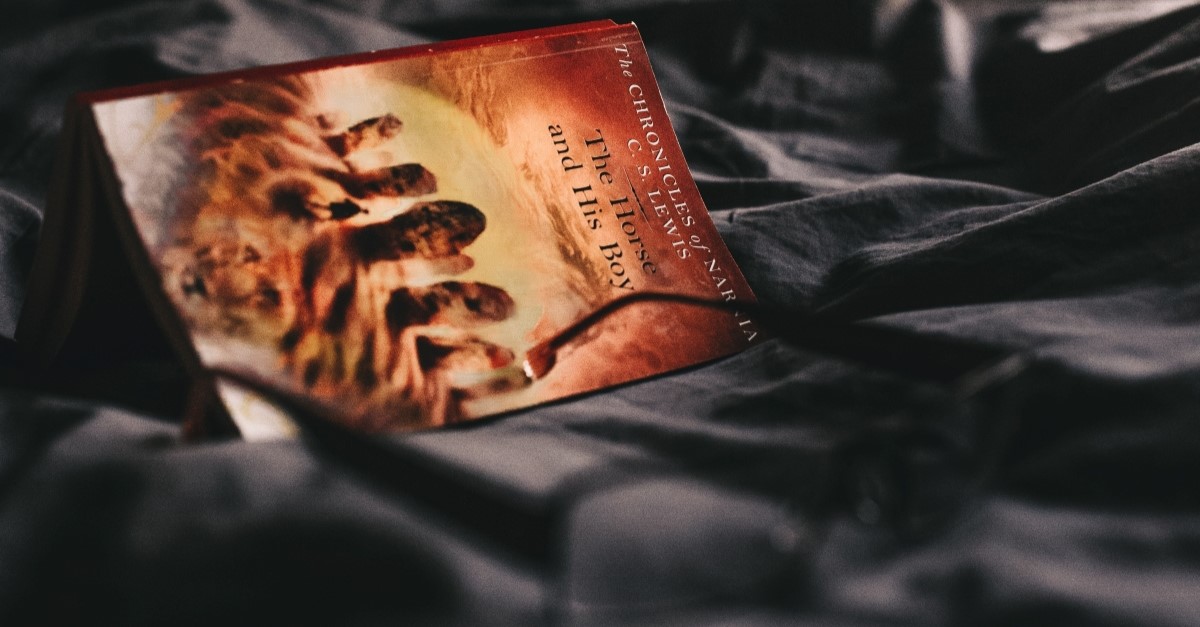
10 Classic Christian Authors You Should Know About
The following writers passed away in the twentieth century (most at least 50 years ago). Consequently, they can all be considered classic authors, though their works are still accessible and have great insights for today.
1. C.S. Lewis
You’d be hard-pressed to find a better-known Christian author today than C.S. Lewis. His books, particularly his apologetics work Mere Christianity and his fantasy series the Chronicles of Narnia, continue to sell millions yearly. While Lewis’ approach to writing about Christianity—relatable, humble, and often humorous—are excellent, they form just one section of his diverse work. He was also a literary critic whose essays (collected in books like On Stories) have timeless insights. He wrote comedy—including the darkly comic Screwtape Letters—where he skewered people’s flaws without being bitter or cruel. He also warned readers (in books like The Abolition of Man) about philosophical trends that could damage society. Whichever angle one approaches Lewis’ work, rich treasures exist waiting to be uncovered.
2. Shūsaku Endō
Born in Tokyo, Endō converted to Roman Catholicism as a child during a period when Christianity was rare in Japan. As Makoto Fujimura shows in Silence and Beauty, Endō navigated his different cultural identities to write novels that communicated a deep knowledge of Japan’s history and how faith can arise in surprising ways in a challenging environment. Endō’s best-known novel, Silence, provides a bittersweet but surprisingly redemptive story about missionaries enduring persecution in 17th-century Japan. Wonderful Fool tells a lighter story about a Frenchman visiting modern-day Japan who seems foolish but might be God’s fool, pushing the people he meets to reconsider their lives.
3. Aleksandr Solzhenitsyn
Aleksandr Solzhenitsyn was one of his generation’s most famous Russian writers, thanks to his trenchant criticisms of the Soviet Union. He critiqued the regime in novels like A Day in the Life of Ivan Denisovich and Cancer Ward and documented its atrocities in nonfiction works like A Gulag Archipelago. Decades later, his works continue to attract readers for his insightful arguments about what happens when societies turn their backs on God and what it means to follow God under severe conditions.
4. Dorothy L. Sayers
Dorothy L. Sayers’ career started in 1916 with poetry and lasted over 40 years, during which she wrote a little bit of everything. Philosophy and apologetics fans enjoy her book on creativity, The Mind of the Maker. Mystery fans enjoy her detective novel The Nine Tailors and other stories featuring Lord Peter Whimsey. Religious fiction fans enjoy her play about the life of Christ, The Man Born to be King. Dante fans know her for her translation of the Divine Comedy. Whichever route readers take to discover Sayers’ work, it’s well worth exploring for her humor, wit, and honesty.
5. Russell Kirk
During his lifetime, Russell Kirk had two interesting writing careers. One was his career as a historian and political scholar, writing books like The Conservative Mind and The Roots of American Order. These books push readers to consider what religious values have shaped the American government and what it means to be conservative rather than reactionary. His other career was fiction, mostly short stories involving ghosts (recently collected in the anthology Ancestral Shadows). Occasionally Kirk dabbled in spy fiction, mixing it with his interests in lonely castles and strange events to create novels like Old House of Fear and Lord of the Hollow Dark. While these stories tend to be dark, Kirk connected his fiction to what he saw writers like C.S. Lewis and Charles Williams doing in their fiction: stories about fantastic things rooted in theological ideas. Frequently, Kirk’s stories deal with religious themes overtly, warning that evil exists and considering how God’s grace may manifest in surprising ways.
6. Flannery O’Connor
Flannery O’Connor became known for novels (Wise Blood, The Violent Bore It Away) and short stories that usually occurred in the South, featuring bizarre events that shatter the main characters’ lives. The events may be violent or just strange. In each case, they expose how the main characters live their lives and the illusions they must shed. In various letters and essays, O’Connor explained that these extreme events use exaggeration to represent how God changes people. Going from sinfulness to holiness is a shocking change. As O’Connor put it in one of her letters, “Grace changes us and the change is painful.”
7. George MacDonald
At various times during his life, MacDonald was a pastor, professor, and public lecturer, but writing was his constant career. He wrote many things, notably realistic novels about people living in Scotland like David Elginbrod and fairytales like The Princess and the Goblin. Each of these books communicated theological themes—usually about God’s relentless love for humanity and humans discovering their hidden longings were pointing them toward God. Similar ideas can be found in his book Unspoken Sermons or the C.S. Lewis-edited book George MacDonald: An Anthology. While MacDonald’s fairy tales have become his best-known work (influencing Lewis, Tolkien, L’Engle, and other famous fantasy authors), any of it is well worth exploring.
8. Hannah Hurnard
Hurnard wrote various books during her lifetime, including the spiritual memoir Watchmen on the Walls. However, she’s best known today for her fantasy novels Hinds Feet on High Places and Mountains of Spices. Both books are allegories in the style of John Bunyan, presenting spiritual truths as clever stories with well-drawn characters.
9. Emmy Arnold
While not as well-known as her husband, the German pastor Eberhard Arnold, Emmy played a key role in his work to show what a countercultural Christian community could look like, even as the Nazis threatened their work. Her memoir A Joyful Pilgrimage describes how she and Eberhard started their community, the Bruderhof, in 1920s Germany. She also wrote poems (collected in Poems and Rhymed Prayers) and edited Eberhard’s writings into collections like Inner Words and Salt and Light.
10. Malcolm Muggeridge
Malcolm Muggeridge may have been one of his generation’s most polarizing and brilliant writers. In his personal life, he often behaved poorly and sometimes took unpopular views just for fun during controversies. On the other hand, he was a satirist who excelled at smashing people’s idols and a journalist who could see through people’s illusions. He made Mother Teresa’s work internationally known (thanks to his book Something Beautiful for God) and was one of the first to report Soviet atrocities in 1930s Ukraine. After becoming a Christian, Muggeridge became an expert apologist who never lost sight of how ironic and humorous faith can be (as seen in essays collected in Seeing through the Eyes of Faith). A complex man and an author well worth rediscovering.

5 Great Books to Learn about Christian Authors
The following books guide readers through various Christian authors across different genres and styles.
1. C.S. Lewis’ Top Ten by Will Vaus. This three-book series traces ten books Lewis credited as having influenced him the most. Vaus shows how these books—classics like The Everlasting Man by G.K. Chesterton to lesser-known novels like Descent into Hell by Charles Williams—(provide interesting insights into Lewis’ life and what writers informed his work.
2. Christian Poetry in America Since 1940 edited by Micah Mattix and Sally Thomas. Many see poetry as a dwindling art form, divorced from reality thanks to postmodernism. Mattix and Thomas argue that poetry is far from dead. In fact, it has proven to be a great art form for Christians. They focus on poets born in 1940 or later, emphasizing still-living ones. The genres and approaches are diverse but clearly show that poetry is still around, still worth studying, and still capable of depicting deep spiritual ideas.
3. More than Words edited by James Calvin Schaap. These essays by members of the Chrysostom Society describe what books influenced them, showing why reading well matters.
4. Reading for the Love of God by Jessica Hooten Wilson. Reading can be a pleasure, but reading can also be more than that. Wilson draws on insights from writers like Augustine, Sayers, and Julian of Norwich to show that reading can become a way to reconnect with core values and remember what God calls us human beings to do.
5. The Christian Imagination edited by Leland Ryken. Christians of varying denominations and backgrounds have discussed what the imagination is for and how to use it in a God-honoring way. Ryken collects 50 classic perspectives on how Christians should use their imaginations, from apologists like Francis Schaeffer to poets like T.S. Eliot. The essays range from discussions about fantasy literature to the nature of imagination.
If you enjoyed this article on Christian authors, you may enjoy the following:
9 Christian Authors You Should Know
10 Exciting Christian Suspense Authors You Should Read Now
50 Great Books on Christian Art
15 Great Christian Sci-Fi Books for Kids and Adults
20 Great Books on Christian Music
15 Classic Christian Fantasy Books for Kids and Adults
20 Secular Movies with Christian Values
10 Inspiring Christian Mystery Authors You Can Read Today
Photo Credit: Mahendra Kumar/Unsplash

